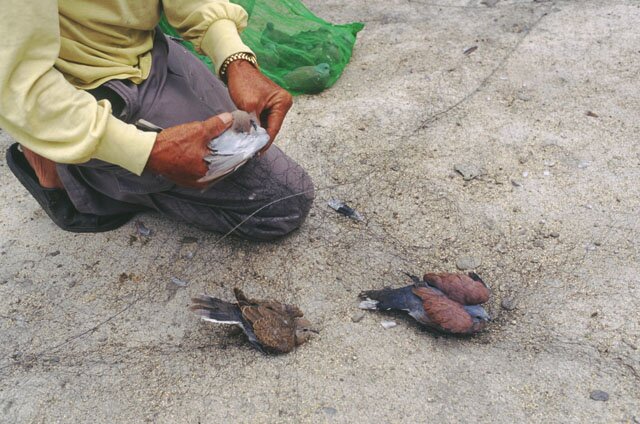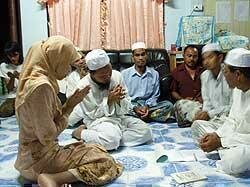BROWSE COUNTRIES/ TERRITORIES
Death by mining - A Third World affair
At least 13 people died per day in the mines of China last year. This year looks set to be worse.

Compared with many owners of Third World mines, Lakshmi Mittal is not really a bad person. But that is not saying much.
Ninety-one miners perished in Mittal’s mines in Kazakhstan between 2004 and 2006 (with no deaths yet this year, after he installed some much-needed safety equipments.)
That, in the scheme of mines in the Third World, is minor. To see the really appalling picture, just move a short distance east from Kazakhstan to China, where death by mining is a daily affair.
China loves to talk about leading the world. It lays claims to being the oldest living civilisation in the world, the most populous country, the first Asian space-faring nation and (hopefully) the winner of most gold medals in the Beijing Olympics next year.
But there is a title that China has tried very hard to sweep under the carpet – it has the highest incidence of mining deaths and accidents in the world.
Death rates in Chinese mines are many times those of European countries. Even among the developing nations, China is way ahead of most others where mining deaths are concerned, though such figures tend to be hard to come by.
Last year there were 2,845 mining accidents in China, killing 4,746 people. This works out to an average of 13 deaths each day of the year, according to figures provided by the State Administration of Work Safety.
Given the way Chinese bureaucrats are prone to downplay unfavourable statistics (while playing up favourable ones), the actual numbers of mining accidents and deaths are likely to be far higher than the official ones.
This year looks set to be worse. In far off Beijing, leaders from President Hu Jintao to Premier Wen Jiabao will continue to mouth concerns of mining safety and draft legislations whose writ seldom extends beyond the capital.
On the ground, or under it, miners are being forced to work round the clock, extracting coal, iron, copper, and other raw materials to feed the insatiable appetite of the Chinese economy. Their lives and health are of little concern to the mine owners who are under the protection of the corrupt local state or party officials, who shield them from safety inspectors. In growing numbers, the mines are actually owned by the officials themselves, which makes policing them a near impossible job.
Scores have died in major accidents this year, including those from two explosions in the Wangjiasai Coal Mine and the Baijiao Coal Mine.
In June, a more horrifying picture emerged. It turns out that deep in the mountains of Shanxi, some mine owners have been kidnapping people – including children – and forcing them to work underground with no wages, little food and drink. These people were regularly beaten if they were considered slacking. A number died.
A police raid freed 31 of these slaves and subsequent raids by a large number of policemen revealed many more. All in some 600 were released from bondage. Some owners and their enforcers were arrested. One turned out to be a local party boss.
The news shocked China, or so it seems. In truth, rumours of mine slaves had been circulating in China for many months, but the authorities only decided to act when it threatened to turn into a national scandal. No one believes that all the mine slaves in China have been freed. It now remains to see whether Hu and Wen are willing to put their money where their mouths are and take action to clean up the mines, instead of sitting pretty in Beijing and talking up a storm.
Related Stories:
Mittal and HK upstart in Birmingham clash?
Login or Register
 Lee Han Shih is the founder, publisher and editor of asia! Magazine.
Lee Han Shih is the founder, publisher and editor of asia! Magazine.
- Asian Dynasties and History
- Conservation of the Environment
- Definition: Culture
- Economy and Economics
- Food and Recipe
- Geopolitics and Strategic Relations
- Health and Body
- Of Government and Politics
- Religion and Practices
- Social Injustices and Poverty Report
- Society, Class and Division
- Unrest, Conflicts and Wars
































 Another Point
Another Point From Jerusalem to the West Bank
From Jerusalem to the West Bank
Comments
Post new comment